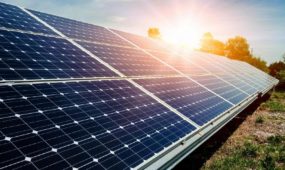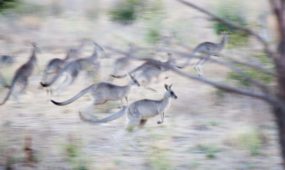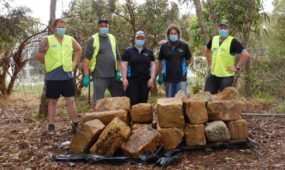Finalists announced for Low Carbon challenge
Environment
TEN finalists have been announced for South Australia’s Low Carbon Entrepreneur Prize as part of a push for the state’s capital Adelaide to become the world’s first carbon neutral city.

Sign up to receive notifications about new stories in this category.
Thank you for subscribing to story notifications.
The finalists will each receive AU$10,000 form a total prize pool of $250,000 to progress their proposal before winners are announced in October.
Ideas ranged from an online energy monitoring system for buildings to compact electric vehicles and using solar thermoelectric technology to shade buildings and generate energy to power them.
The finalists were selected from 150 local, national and international entries and hail from South Australia, Victoria, Queensland, New South Wales and the United States. Other entries came from South Africa, Greece, the United Kingdom, Kenya, Taiwan, Malaysia, Colombia and France.
The Entrepreneur Prize is among a series of green initiatives helping Adelaide gain momentum in its bid to become the world’s first carbon neutral city by 2025. It has already reduced its carbon emissions by 20 per cent between 2007 and 2013.
Last year the Adelaide City Council and the South Australian Government together pledged to make the city carbon neutral after they signed two United Nations initiatives – The Compact of States and Regions and The Compact of Mayors – that would highlight and assess the region’s climate efforts.
Lord Mayor Martin Haese said Adelaide was well placed to achieve its goal because it was one of the few countries in the world to have decoupled.
“The clean, green, blue-sky positioning are three terms that are often used to describe South Australia internationally,” he said.
“Our conditions are ideally suited towards us being a leader when it comes to mitigation and adaptation.
“You look at what I call the Big Three, what’s in our grid, what’s coming out of our buildings and what’s on the city streets – and even public transport has a great deal to do with this discussion.
“We are one of the few cities that have decoupled in terms of we can empirically prove that we can improve GDP in line with carbon reduction. We have about a 28 per cent GDP growth over that period (2007-2013) and about 20 per cent reduction in operational emissions.”
Adelaide’s CBD is home to more than 20,000 residents and is benefiting from a concerted push by the state government and city council to have more people living in the heart of the city.
This week the government announced it would spend $50 million to extend the city’s tram network to reduce its reliance on buses and cars.
South Australia leads the nation in the uptake of wind energy and rooftop solar with renewable sources accounting for more than 40 per cent of the electricity generated in the state.
Last month, renowned global environmentalist David Suzuki wrote an article on his blog about South Australia setting a renewable energy example for the rest of the world to follow.
The council has reduced energy consumption across Adelaide city by about $800,000. It has halved energy use in its carparks and is also trialling smart streetlights and initiated a rollout of LED conversions throughout the city with the aim of increasing the annual savings to more than $1m.
“The electrification of trains, public transport system improvements are all about continuously working toward an objective over many years,” Haese said.
“We take responsibility for 50 per cent of public transport carbon emissions. Whilst it is a limited geographic area in its focus, it has a state-wide impact.
“We launched on the first of July (2015), the Sustainable Incentive Scheme, financial assistance to ratepayers, both residential and commercial. Some $5000 for solar PV, some $5000 battery storage technology, $1000 for LED lighting conversions and electric vehicle charging points.
“We are doing a review of many our incentives to accelerate the pace.”
Along with the Adelaide City’s Council efforts to create a more sustainable city environment, South Australia’s entrepreneurs are also focusing on the goal.
Innovative clean, green products are also being developed in Adelaide from smart energy monitors to energy efficient hot water heaters and fuel saving devices for engines.
“Everyone is in the business of sustainability in Adelaide – that is critical,”Haese said.
“We’ve launched a four-year strategic plan which talks to a lot of this to look at arrange of measures including reviewing our own fleets, procurement practices, leading by example over the installation of solar PV over more of our buildings.
“Point one in that strategic plan is to become a smart city. This relationship between data speed, the environment and automation to some degree, is converging.
“Adelaide is in a very good position and the conditions are right.”
Jump to next article



